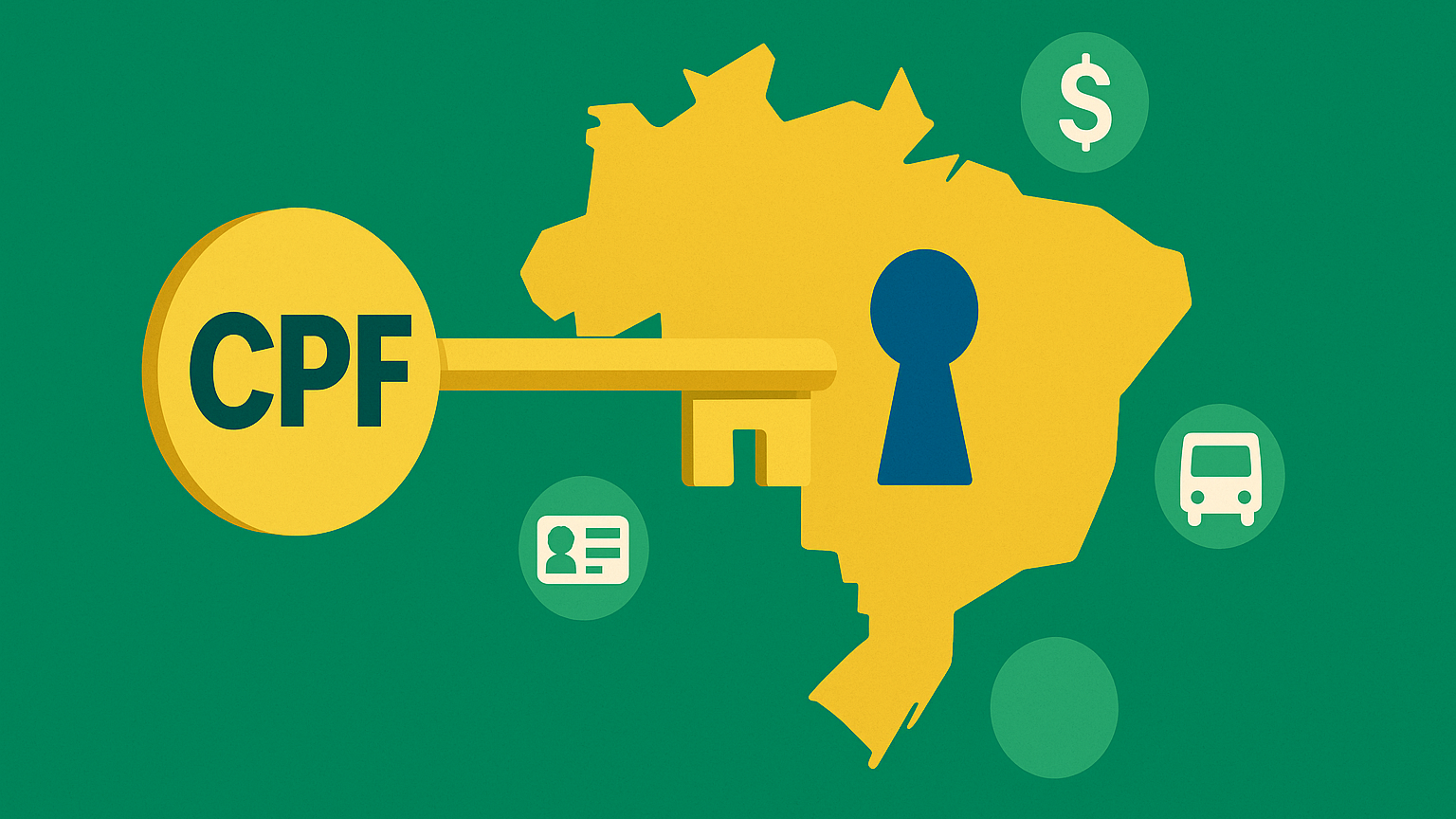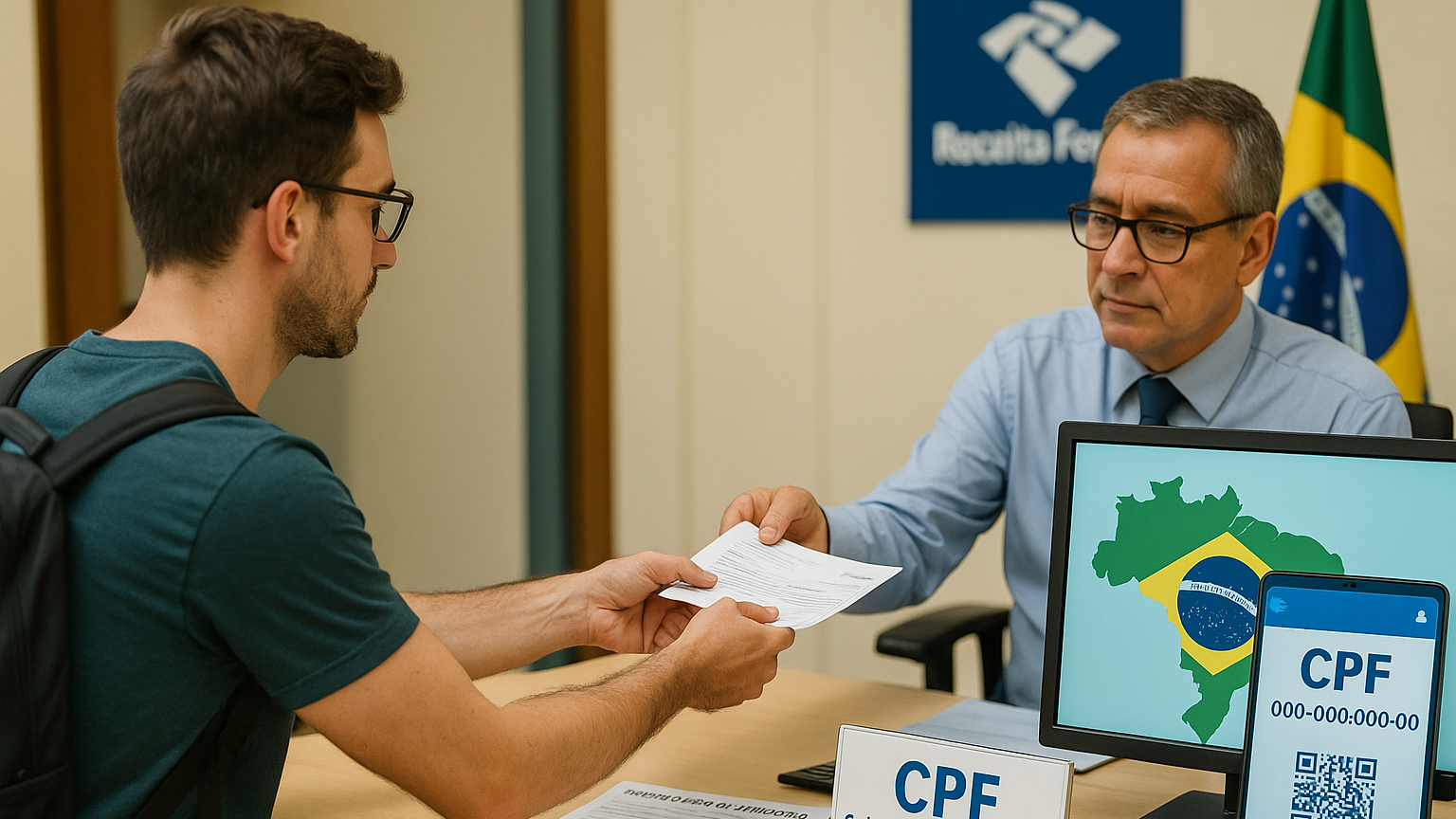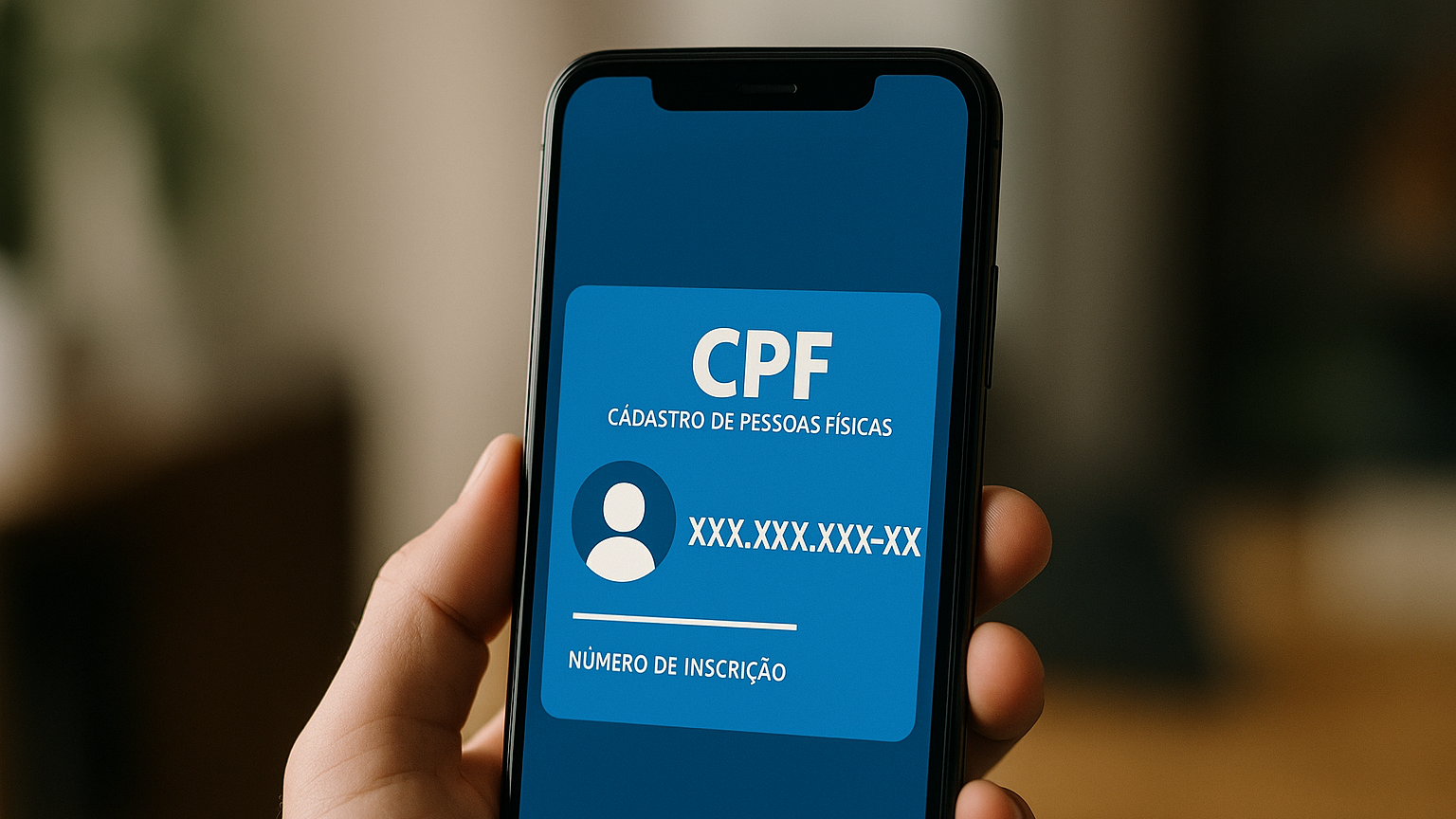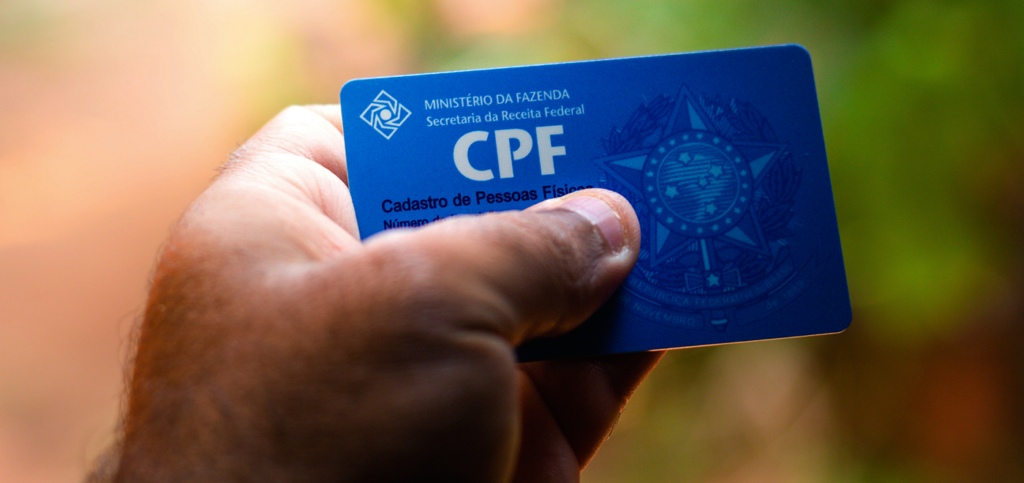Brazil, a country of vibrant culture, stunning landscapes, and growing economic opportunities, is increasingly becoming a magnet for digital nomads and remote workers. As you plan your extended stay or even a short visit for remote work Brazil, one crucial document you’ll encounter is the CPF (Cadastro de Pessoas Físicas), Brazil’s individual taxpayer registry. Understanding how to get a CPF in Brazil is therefore a fundamental step for any foreigner looking to seamlessly integrate into Brazilian life and navigate its legal bureaucracy. This guide will clarify how to get a CPF in Brazil and simplify the process.
For any digital nomad, knowing how to get a CPF in Brazil is key. This article will serve as your go-to resource for understanding the importance of the CPF, the application process, and how it impacts your daily life and financial activities in Brazil. We’ll ensure that the information is presented clearly, with official references to help you navigate the process with confidence.
By the end of this guide, you’ll have a solid understanding of how to get a CPF in Brazil and why it’s an essential tool for your journey as a digital nomad in this captivating South American nation. The growing appeal of remote work Brazil makes this information even more vital. For successful remote work Brazil, the CPF is indispensable.
This guide will help you understand how to get a CPF in Brazil and its importance. Learning how to get a CPF in Brazil is your first step. The remote work Brazil experience is greatly enhanced by having a CPF. This guide will show you how to get a CPF in Brazil.
What is a CPF and Why is it Essential for Foreigners in Brazil?

The CPF, or Cadastro de Pessoas Físicas, is the Brazilian individual taxpayer registry number. It is a unique, eleven-digit identification number issued by the Receita Federal do Brasil (Brazilian Federal Revenue). While its primary function is for tax purposes, the CPF has evolved into a fundamental identification document required for nearly all financial and bureaucratic transactions in Brazil. For foreigners, especially those planning an extended stay or engaging in any form of economic activity, understanding how to get a CPF in Brazil is paramount. This knowledge of how to get a CPF in Brazil will simplify many aspects of your stay. Learning how to get a CPF in Brazil is a crucial step.
Think of the CPF as your key to unlocking various services and opportunities in Brazil. Without a valid Brazil tax ID, you will face significant limitations. For instance, you cannot legally open a bank account, which is essential for managing your finances, receiving payments, or paying bills. Renting an apartment, signing a mobile phone contract, purchasing a local SIM card, or even making online purchases often require a CPF. Even seemingly simple tasks like buying tickets for public transport in some cities or registering for certain services can be impossible without this number.
This highlights the pervasive nature of the CPF in daily Brazilian life and the importance of addressing the legal bureaucracy early on. Having your Brazil tax ID is crucial for all your transactions. For digital nomads, the CPF is particularly critical. While your income might be generated from outside Brazil, your daily life and consumption within the country will inevitably require this identification. A digital nomad needs this number to access local services, establish residency (if applicable), and ensure smooth financial operations. It facilitates interactions with local businesses and government agencies, reducing potential friction and making your experience in Brazil much more convenient.
Without it, you might find yourself relying on others for transactions, which can be inefficient and limit your independence. This makes the digital nomad a more integrated part of Brazilian society, this is why the CPF is so important, and this guide is essential.
Moreover, the CPF is increasingly becoming the main identification document in Brazil, integrating with other systems. This means that having your Brazil tax ID simplifies various administrative processes and ensures you are recognized within the national registry. It is a permanent number, meaning once you obtain it, it remains yours for life, regardless of your residency status. This permanence provides long-term stability for foreigners who frequently visit or plan to reside in Brazil for extended periods. Therefore, learning how to get a CPF in Brazil is not just about compliance; it’s about empowerment and seamless integration into Brazilian society. Your Brazil tax ID is your key to success. This Brazil tax ID is essential for all your financial dealings.
How to Get a CPF from Abroad: A Step-by-Step Guide for Your Brazil Tax ID
For many digital nomads, the journey to Brazil begins long before arrival. Fortunately, it is possible to obtain your Brazil tax ID while still in your home country, or any country where a Brazilian consulate or embassy is present. This proactive approach can save you time and streamline your initial days in Brazil. The process typically involves submitting your application through a Brazilian consular office. Understanding how to get a CPF in Brazil from abroad is crucial for those who prefer to have all their essential documents in order before stepping foot in the country.
Step-by-Step Application at a Brazilian Consulate or Embassy:
- Locate Your Nearest Consulate/Embassy: Find the Brazilian consulate or embassy responsible for your jurisdiction. Their websites will provide specific instructions and requirements, as these can sometimes vary slightly by location.
- Fill Out the Online Form: Access the Receita Federal website (servicos.receita.fazenda.gov.br/Servicos/CPF/cpfEstrangeiro/Fcpfing.asp) and fill out the online CPF registration form for foreigners. Ensure all information is accurate and matches your passport details. After completing the form, you will receive a protocol number or a printed form [1]. This is a critical first step in how to get a CPF in Brazil. Understanding how to get a CPF in Brazil is crucial for a smooth process. To fully grasp how to get a CPF in Brazil, continue reading.
- Gather Required Documents: The standard documents usually include:
- Your original valid passport.
- A recent photograph (often 3×4 cm or 3.5×4.5 cm, similar to passport photos).
- Your birth certificate (original or certified copy).
- Proof of residence (e.g., utility bill, driver’s license) in your country of origin.
- For minors, additional documents like parents’ identification and a consent form may be required.
- Schedule an Appointment: Most consulates require you to schedule an appointment through their e-Consular platform. You will typically upload scanned copies of your documents to this system for pre-analysis before your in-person visit. This helps in addressing any potential issues with your application for your Brazil tax ID beforehand.
- Attend the Appointment: Bring all original documents to your scheduled appointment. The consular officer will review your application and documents. If everything is in order, your CPF number may be issued on the spot, or you will be informed of the processing time. The consular fee for a digital nomad visa, which often goes hand-in-hand with needing a CPF, is typically around €120.00 for most nationals [2]. While the CPF itself might not have a direct fee at the consulate, other related services might.
- Receive Your CPF: Once processed, you will receive your CPF number. While a physical card is no longer commonly issued, the number itself is what matters. You can often print a proof of registration from the Receita Federal website using your number. This completes the initial phase of how to get a CPF in Brazil from abroad. Knowing how to get a CPF in Brazil before you arrive can save you a lot of hassle. This is a key step in how to get a CPF in Brazil.
This method is generally recommended for those who prefer to handle bureaucracy before travel, ensuring that their CPF digital nomad status is established upon arrival. It provides peace of mind and allows for immediate access to services that require this essential Brazil tax ID. Understanding how to get a CPF in Brazil is a crucial step for any digital nomad. A proactive CPF digital nomad will find this very helpful.
How to Get a CPF While in Brazil: Navigating the Process On-Site

If you are already in Brazil, perhaps on a tourist visa or a Digital Nomad Visa, and realize the necessity of obtaining your Brazil tax ID, the process is also straightforward, though it involves visiting a local agency. This method is often quicker for those already present in the country, as it bypasses the international shipping times and consular appointment queues. Understanding how to get a CPF in Brazil once you’ve arrived is crucial for seamless integration into daily life.
Step-by-Step Application Within Brazil:
- Fill Out the Online Form: Similar to applying from abroad, you must first access the Receita Federal website (servicos.receita.fazenda.gov.br/Servicos/CPF/cpfEstrangeiro/Fcpfing.asp) and complete the online CPF registration form for foreigners. Print the generated form or note down the protocol number. This form is your initial step in how to get a CPF in Brazil locally [3].
- Pay the Fee (if applicable): While the CPF itself is free, some authorized agencies may charge a small processing fee for their services. This fee is typically around R$ 7.00 to R$ 10.00 (approximately US$ 1.30 – US$ 1.90 / € 1.20 – € 1.75). You will usually pay this at a Banco do Brasil, Caixa Econômica Federal, or Correios (Post Office) branch. Keep the receipt as proof of payment.
- Visit an Authorized Agency: With your completed form (or protocol number) and payment receipt, you will need to visit one of the following authorized agencies:
- Correios (Post Office): This is often the most convenient option due to the widespread presence of post offices across Brazil. They handle the initial processing of CPF applications.
- Banco do Brasil or Caixa Econômica Federal: Some branches of these public banks also process CPF applications.
- Receita Federal (Federal Revenue Office): For more complex cases or if you prefer to go directly to the source, you can visit a Receita Federal unit. It’s advisable to check if an appointment is required for foreigners at your chosen unit, as policies can vary by location and demand. Some offices may require you to arrive very early, even before opening, to secure a spot [4].
- Present Documents: At the chosen agency, you will need to present:
- Your original valid passport.
- The printed CPF registration form or protocol number.
- The payment receipt (if applicable).
- For minors, parents’ identification and a consent form are necessary.
- Receive Your CPF: In most cases, if all documents are in order, your Brazil tax ID will be issued on the spot. You will receive a printout with your CPF number. This number is immediately active and can be used for various transactions. This quick turnaround makes it an attractive option for the digital nomad who needs immediate access to services.
This method is generally faster for those already in Brazil, allowing for quick resolution of the unclear CPF process that many foreigners initially perceive. Having your Brazil tax ID in hand will significantly ease your daily life and financial interactions, making your remote work Brazil experience much smoother. The CPF process can be daunting, but this guide simplifies it. Navigating it is now easier. This guide helps demystify the process to get your tax ID.
One of the most immediate benefits of having a CPF as digital nomad is the ability to engage in financial transactions. Without it, opening a local bank account is virtually impossible. A Brazilian bank account allows you to receive payments, manage local expenses, and avoid high international transaction fees. Furthermore, many online payment platforms and e-commerce sites in Brazil require a CPF for purchases, making everyday shopping and service subscriptions challenging without one. This directly addresses the pain point of legal bureaucracy, transforming a complex system into an accessible one.
Beyond banking and online shopping, the CPF is essential for accessing various services that enhance a digital nomad’s lifestyle. Want to get a local SIM card for reliable internet connectivity? You’ll need a CPF. Looking to sign up for a gym membership, a streaming service, or even a local language course? The CPF will be requested. Even for seemingly minor transactions, such as purchasing certain discounted items at supermarkets or pharmacies, having a Brazil tax ID can grant you access to local pricing and benefits that are otherwise unavailable to foreigners without this number. This highlights how the CPF simplifies daily life and reduces friction for the digital nomad.
Moreover, for those considering a longer stay or even establishing temporary residency, the CPF is a foundational document. It is often required for formalizing rental agreements, registering with local authorities, and even for certain visa processes beyond the initial Digital Nomad Visa. While the Digital Nomad Visa itself might not strictly require a CPF for application, having one upon arrival or obtaining it shortly after is highly recommended to facilitate all subsequent administrative steps. This proactive approach to how to get a CPF in Brazil ensures that you are well-prepared for any future bureaucratic needs.
In essence, the CPF empowers the CPF digital nomad to operate with the same level of convenience and access as a local resident. It removes barriers, simplifies processes, and allows you to fully immerse yourself in the Brazilian experience without constant encounters with legal bureaucracy. It transforms the unclear CPF process into a clear pathway for engagement, making your time in Brazil more efficient and enjoyable. Therefore, prioritizing the acquisition of your Brazil tax ID is a smart move for any remote worker planning to make Brazil their temporary home.
Understanding Brazil Tax ID and Documentation for Foreigners
While the CPF is primarily an identification number, its name, Cadastro de Pessoas Físicas (Individual Taxpayer Registry), clearly indicates its role in Brazil’s tax system. For foreigners, understanding the implications of their Brazil tax ID regarding tax documentation is crucial, especially for digital nomads who might be earning income from abroad. This section aims to clarify common questions about tax obligations and how the CPF fits into the broader picture of tax documentation for foreigners in Brazil. This Brazil tax ID is a key component of your financial life in Brazil.
It’s important to distinguish between having a CPF and being a tax resident in Brazil. Simply possessing a Brazil tax ID does not automatically make you a tax resident. Generally, you become a tax resident if you reside in Brazil for more than 183 days within a 12-month period, even if these days are not consecutive. Once you are considered a tax resident, your worldwide income may become subject to Brazilian taxation. Non-residents, on the other hand, are typically taxed only on income sourced within Brazil, often at a flat rate [5]. This distinction is vital for a digital nomad to understand to avoid unexpected tax liabilities. Your Brazil tax ID is important for tax purposes.
For those who become tax residents, the CPF is indispensable for filing annual income tax returns (Declaração de Imposto de Renda). Brazil’s tax year aligns with the calendar year, and returns are typically due by the last business day of May of the following year. The tax rates in Brazil are progressive, ranging from nil to 27.5%, depending on income levels. For example, monthly income above R$ 4,664.68 (approximately US$ 890 / € 815) may attract the maximum rate [6]. It is highly recommended to consult with a Brazilian tax professional to understand your specific obligations and ensure compliance with local tax laws, especially concerning potential double taxation agreements between Brazil and your home country.
Even if you are not a tax resident, your Brazil tax ID might be required for certain financial transactions that generate income within Brazil, such as investments or property rentals. The CPF ensures that these transactions are properly recorded and that any applicable taxes are withheld or paid. This aspect of the unclear CPF process often causes confusion, but with proper guidance, it can be navigated effectively. The CPF serves as the primary identifier for all your financial dealings with the Brazilian government and financial institutions.
In summary, while obtaining your Brazil tax ID is a relatively straightforward process, understanding its implications for tax documentation and residency is a more complex matter. For everyone, it is advisable to seek professional legal and tax advice tailored to your individual circumstances. This proactive approach will ensure that you remain compliant with Brazilian regulations and can fully enjoy your experience in Brazil without concerns about legal or fiscal issues. The CPF is your first step towards transparent and compliant financial engagement in Brazil.
Common Pitfalls and Tips for a Smooth CPF Application Process

Navigating any bureaucratic process in a foreign country can present challenges, and obtaining your Brazil tax ID is no exception. While the process of how to get a CPF in Brazil is generally well-defined, there are common pitfalls that foreigners, particularly digital nomads, might encounter. Being aware of these can help you ensure a smoother and more efficient application, minimizing frustration and delays.
One frequent issue is incomplete documentation. Always double-check the specific requirements of the consulate or agency you plan to visit. Documents like birth certificates often need to be original or certified copies, and sometimes a sworn translation into Portuguese might be required, especially if your documents are not in English. Ensure your passport is valid for at least six months beyond your intended stay. A common mistake is assuming that a digital copy of a document will suffice; often, physical originals are mandatory. This attention to detail is crucial to avoid delays in the unclear CPF process.
Another pitfall can be related to the online application form. While seemingly simple, errors in personal details, especially names or dates of birth, can lead to rejection. Ensure that the information you provide exactly matches your passport. If you are applying through a consulate, make sure to follow their e-Consular system instructions meticulously, as pre-analysis of documents can catch errors before your in-person appointment. This proactive approach can save you a trip and ensure your application proceeds without a hitch.
Tips for a Smooth Application:
- Start Early: Do not wait until the last minute to apply for your Brazil tax ID. Whether applying from abroad or in Brazil, allocate sufficient time for the process, including potential delays or the need for additional documentation. This is especially true if you need your CPF for urgent matters like opening a bank account.
- Verify Information: Always cross-reference the requirements on the official Receita Federal website and the specific consulate/agency you are dealing with. Information can change, so up-to-date verification is key.
- Keep Copies: Make photocopies of all documents you submit, and keep them organized. This will be invaluable if any issues arise or if you need to refer back to your application details.
- Be Patient and Polite: Brazilian bureaucracy, like in many countries, can sometimes be slow. Approach the process with patience and politeness. A positive attitude can go a long way in facilitating your application for your CPF.
- Consider Professional Help: If you find the process overwhelming or encounter significant language barriers, consider hiring a local lawyer or a specialized agency that assists foreigners with CPF applications. While there will be a fee, it can save you considerable time and stress, ensuring a correct and swift application for your Brazil tax ID.
- Understand the Language: While the article is in English, many official forms and interactions in Brazil will be in Portuguese. Familiarizing yourself with basic Portuguese terms related to documents and personal information can be very helpful. This can alleviate some of the perceived unclear CPF process issues.
By following these tips and being prepared, your experience of how to get a CPF in Brazil can be a smooth and efficient one, allowing you to quickly move on to enjoying your time as a digital nomad in this incredible country.
Conclusion: Your Essential Brazil Tax ID for a Seamless Digital Nomad Experience
Obtaining your CPF (Cadastro de Pessoas Físicas) is undeniably one of the most critical steps for any foreigner, especially a digital nomad, planning an extended stay in Brazil. Far from being just a tax identification number, this Brazil tax ID serves as your gateway to virtually all essential services and financial transactions within the country. From opening a bank account and signing rental agreements to getting a local phone plan and making online purchases, understanding how to get a CPF in Brazil is fundamental to a seamless and independent experience.
This guide has aimed to demystify the often-perceived unclear CPF process, providing clear pathways for application whether you are still abroad or already enjoying the vibrant Brazilian culture. For the digital nomad, having this document in hand means overcoming legal bureaucracy and unlocking a world of convenience, allowing you to fully immerse yourself in your remote work Brazil journey without unnecessary hurdles. It ensures that you can operate with the same ease and access as a local, making your daily life more efficient and enjoyable.
While the process itself is straightforward, attention to detail in documentation and proactive planning can significantly smooth your application. Remember to verify requirements with official sources, prepare all necessary documents, and consider seeking professional assistance if needed. By prioritizing the acquisition of your CPF, you are not just fulfilling a bureaucratic requirement; you are investing in a more integrated, convenient, and fulfilling experience as a digital nomad in Brazil. Your Brazil tax ID is truly your essential first step towards a successful and enriching adventure in this captivating South American nation.
References
[1] Receita Federal do Brasil. Serviços CPF Estrangeiro. Available at: https://servicos.receita.fazenda.gov.br/Servicos/CPF/cpfEstrangeiro/Fcpfing.asp
[2] Portal Gov.br. Digital Nomad Visa (VITEM XIV). Available at: https://www.gov.br/mre/pt-br/embaixada-helsinque/consular-services/digital-nomad-visa-vitem-xiv
[3] Receita Federal do Brasil. Serviços CPF Estrangeiro. Available at: https://servicos.receita.fazenda.gov.br/Servicos/CPF/cpfEstrangeiro/Fcpfing.asp
[4] Brazilian Experience. How to obtain a Brazilian CPF. Available at: https://brazilianexperience.com/english-how-to-get-a-brazilian-cpf/
[5] Taxes for Expats. Taxes in Brazil for expats: file smart & avoid double taxation. Available at: https://www.taxesforexpats.com/country-guides/brazil/us-tax-preparation-in-brazil.html
[6] Experts for Expats. Taxes in Brazil for foreign nationals and Brazilians living abroad. Available at: https://www.expertsforexpats.com/advice/tax/taxes-in-brazil







Simply want to say your article is as astonishing.
The clarity in your post is just cool and i can suppose you’re a professional on this subject.
Fine together with your permission allow me to grab your feed to keep up to date with forthcoming post.
Thank you a million and please keep up the gratifying work.
Thank you so much for the kind words! I’m really glad you found the article clear and useful.